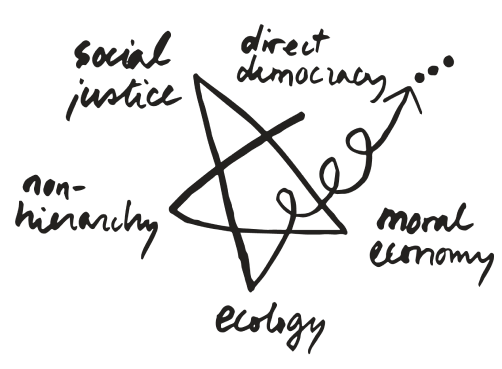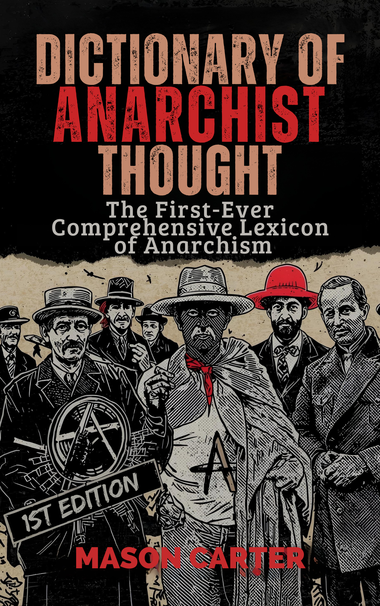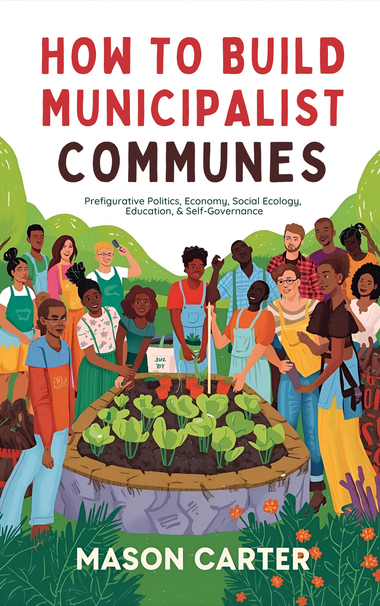The foundational myth of the state is its necessity. It posits itself as the sole entity capable of imposing order upon a chaotic humanity, the neutral arbiter of conflicts, and the guarantor of security. This is a lie. The state is not a neutral arbiter; it is the historical product of propertied classes consolidating their power, a mechanism born to protect accumulation and enforce hierarchy. Its very DNA is coded with domination. Therefore, it cannot be reformed to serve the poor, the marginalized, or the ecosystem. It must be abolished. This is the first, non-negotiable premise of a free society.
We now confront a second, undeniable premise. The planetary system is terminally ill. The project of industrial civilization, built upon the twin engines of state power and capital accumulation, has achieved its logical conclusion: the active destabilization of the biospheric conditions that support complex life. The science is settled. We are not awaiting collapse; we are living within its protracted, uneven, and irreversible unfolding. The choice is no longer between a sustainable future and an unsustainable one. The choice is now about how we conduct ourselves in the face of a terminal diagnosis.
This reality has given rise to a pervasive nihilism, a philosophy that rightly identifies the absurdity of our situation but draws a fatalistic conclusion. It suggests that because the large scale systems are doomed and no cosmic meaning awaits us, all action is futile. This perspective advocates for a posture of acceptance, a "planetary hospice" where the only virtue is to meet the end with clear eyed resignation, free from the "foolishness" of hope or struggle. While understandable, this position represents a profound philosophical and practical failure. It mistakes the absence of inherent meaning for a prohibition against creating meaning. It misidentifies the collapse of a civilization with the end of all value.
If the universe is indeed silent and offers us no script, then we are presented with the most radical freedom imaginable. We are unshackled from any predetermined purpose. In this void, we are compelled to become the authors of our own values. The question is not whether meaning exists, but what meaning we will choose to build from the raw materials of our existence and our relationships. To choose inaction and passive acceptance is itself a value choice, one that implicitly sides with the forces of entropy and domination. It is a choice to let the world end on the terms of its abusers.
Anarchism provides the antithesis to this nihilistic acquiescence. It is not a blueprint for a future utopia to be achieved after a revolution. It is a praxis of dignity for the present moment. It is the active, conscious creation of meaning through direct action, mutual aid, and solidarity. When we practice collective care, when we organize to meet our own needs and the needs of our communities outside the logic of state and capital, we are not merely preparing for a new world. We are building and inhabiting that new world in the shell of the old, right now, under the shadow of the end.
This is not foolish. It is a defiant, pragmatic realism. The scale of the crisis means that traditional political solutions, which operate through centralized power, are not only inadequate but are often active contributors to the problem. Our strength lies in decentralization, in resilience, in the ability to adapt and care for one another when the monolithic systems fail, as they inevitably will. Abolishing the state is not a distant goal; it is the process of rendering it obsolete by building the capacity for self organization and collective self defense. Dismantling hierarchy is the process of learning to relate to one another as equals in a shared struggle.
The meaning we create is not deferred to a future salvation. It is immanent in the act itself. The meaning is in the food shared, the knowledge liberated, the land defended, the community protected. It is in the solidarity that says, "You will not face this alone." This praxis is our dignity. It is the conscious decision to stare into the abyss and not be paralyzed, but to be galvanized into building pockets of freedom and compassion.
anarchism is the philosophical and practical commitment to creating meaning through the abolition of power and the cultivation of life. The collapse of the old world is not our end. It is the barren ground from which we choose to grow a final, defiant garden of mutual aid, its value derived not from its permanence, but from the sheer fact that we chose to plant it together.
#Anarchism #Collapse #PostCiv #ClimateCrisis #MutualAid #Solidarity #AntiState #EcoAnarchism #SocialEcology #PoliticalTheory #Philosophy #Nihilism #Existentialism #Dignity #DirectAction #CommunityResilience #BlackSky #Biodiversity #Degrowth


